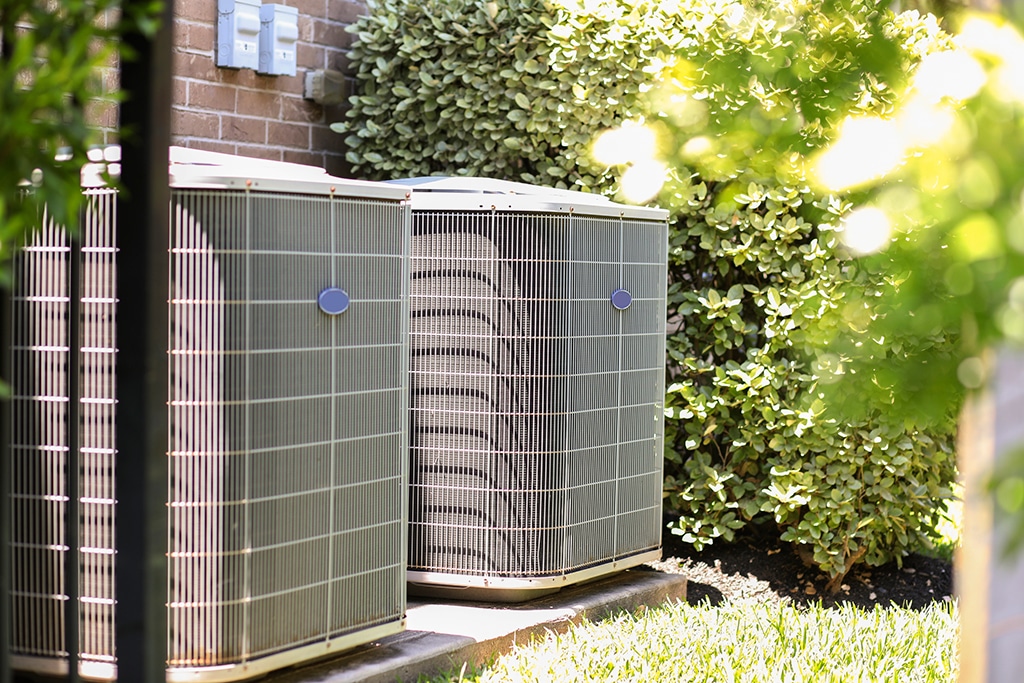When it comes to cooling and heating your home, the terms “air conditioner” and “HVAC” are often used interchangeably. However, these two systems are not the same and serve different purposes. Understanding the differences between air conditioners and HVAC systems can help you make informed decisions about your home comfort needs.

Credit: www.onehourairftworth.com
What is an Air Conditioner?
An air conditioner is a system designed to control the temperature, humidity, and air quality in a specific area, such as a room, office, or building. It works by removing heat and moisture from the indoor air and expelling it outside, resulting in cooler and more comfortable indoor temperatures. Air conditioners are commonly used in residential, commercial, and industrial settings.
Key Features Of An Air Conditioner
Here are some key features of an air conditioner:
- Focuses on cooling and dehumidifying indoor air
- Uses refrigerants to transfer heat from indoors to outdoors
- Typically consists of an indoor unit (evaporator coil) and an outdoor unit (condenser coil)
- Requires a separate heating system for cold weather
- Can be a ductless or central system
What is HVAC?
HVAC stands for Heating, Ventilation, and Air Conditioning. Unlike an air conditioner, HVAC systems provide both heating and cooling capabilities, as well as ventilation to maintain indoor air quality. HVAC systems are designed to offer a complete climate control solution for residential, commercial, and industrial spaces, ensuring comfort throughout the year.
Key Features Of Hvac
Here are the key features of an HVAC system:
- Provides heating, cooling, and ventilation
- Can include various components such as furnaces, heat pumps, air handlers, and ductwork
- Offers comprehensive climate control for year-round comfort
- Can be integrated with advanced technologies for energy efficiency and smart automation
- Well-suited for larger homes and commercial buildings
Understanding the Differences
Now that we’ve defined air conditioners and HVAC systems, let’s delve into the key differences between the two:
| Aspect | Air Conditioner | HVAC System |
|---|---|---|
| Functionality | Primarily cools and dehumidifies the air | Provides heating, cooling, and ventilation |
| Components | Consists of an indoor and outdoor unit | Comprises various heating and cooling components, along with ventilation systems |
| Year-round Comfort | Requires a separate heating system for cold weather | Offers complete climate control for all seasons |
| Scope | Commonly used in smaller residential and commercial spaces | Well-suited for larger homes and commercial buildings |
As seen from the comparison, an air conditioner focuses solely on cooling, while an HVAC system provides comprehensive heating, cooling, and ventilation capabilities. The choice between the two depends on factors such as the size of the space, specific comfort needs, and budget considerations.
Conclusion
In conclusion, while both air conditioners and HVAC systems contribute to indoor comfort, they serve different purposes and have distinct features. Understanding the differences between the two can help homeowners and business owners make informed decisions when it comes to selecting the most suitable system for their heating and cooling needs.
Whether you opt for a standalone air conditioner or invest in a comprehensive HVAC system, prioritizing regular maintenance and professional servicing is essential to ensure optimal performance and energy efficiency.
For expert guidance on selecting, installing, and maintaining air conditioning and HVAC systems, reach out to our team of professionals. We are dedicated to helping you achieve a comfortable and healthy indoor environment throughout the year.
